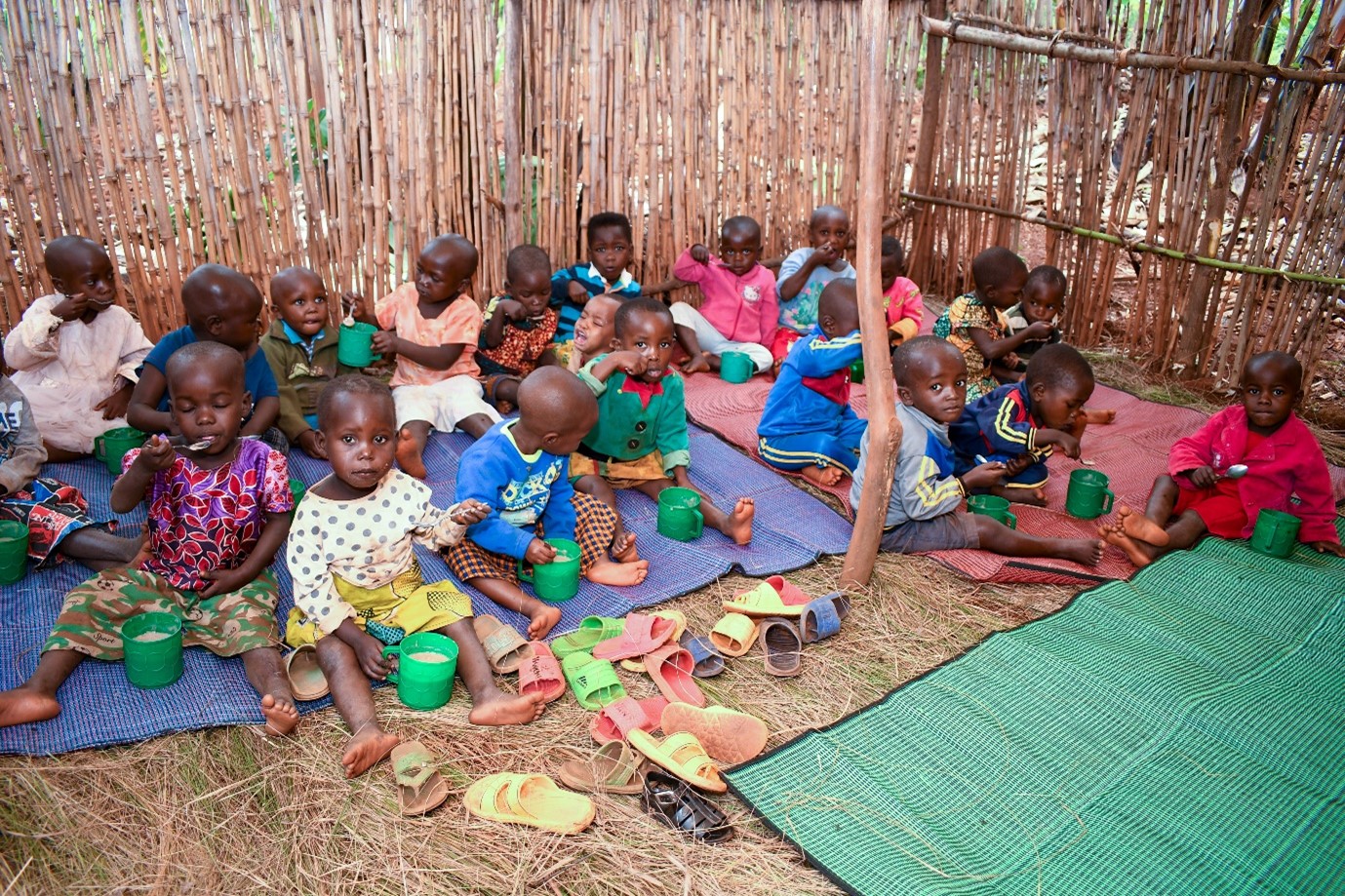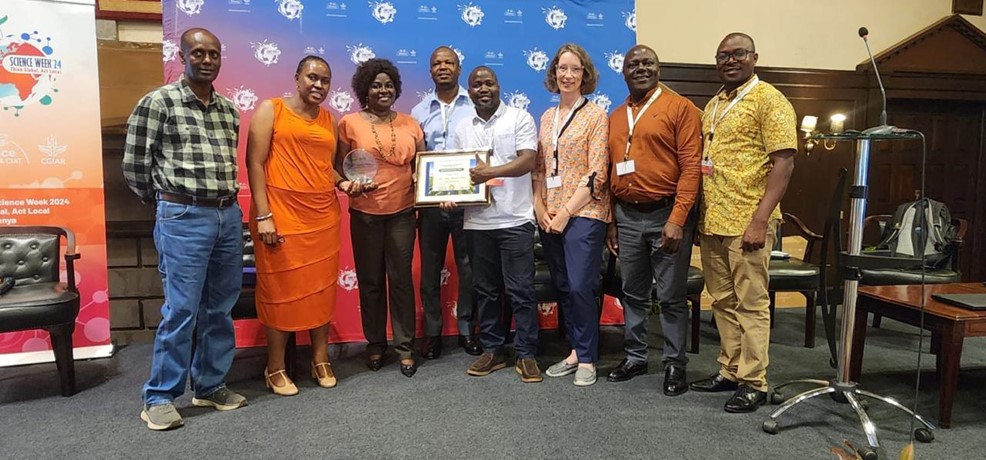By Esther Nzuki, Justice Munthali, Jean-Claude Rubyogo
The Pan-Africa Bean Research Alliance (PABRA) was acknowledged as the awardee of the Level 3 Outstanding Outcome award during the Alliance Science Week 2024, held in Nairobi, Kenya, on 8 March, 2024. This recognition was based on the compelling evidence presented in the 2023 Outcome Impact Case Report (OICR). PABRA’s achievement underscores its remarkable journey within the Alliance, marked by steadfast collaborative bean research and pioneering innovations along bean value chain to advance nutrition, promote health, and bolster food and income security for small holders and traders whose majority are women, while improving natural resources.
“On behalf of the Strategic Performance and Results Management (PISA4 Impact SPRM) team, together with the Science Writing and Editing Support (SWS) team, we would like to extend our appreciation and congratulations to you and your team for your fortitude in submitting your inspiring 2023 Outcome Impact Case Report (OICR) on time. Your OICR was not only shortlisted, but it was eventually judged by the distinguished external Selection Committee members as the Winner of the 2023 Outstanding Outcome Level 3 during the Alliance Science Week 2024 in Nairobi, Kenya on 8th March 2024”. Ronaldo S. Estera M&E Associate Officer PISA41
The work of PABRA has ensured that farmers in Africa are more responsive to climate change, market price volatilities, pests, and diseases, therefore more resilient. Farmers have become more informed of new bean technologies, new practices and innovations, and emerging market opportunities. For over 26 years, PABRA has facilitated the release of over 650 new bean varieties, in 31 African countries, which have reached more than 42.7 million farmers (58% of whom are women), thus significantly improving nutrition, health, food security and economic status. Bean variants are nutritionally and economically important food crops in each part of the world, besides providing nutrients such as multifunctional carbohydrates, elevated proteins, dietary fibre, minerals, and vitamins, they are also a rich source of various polyphenolic compounds with prospective health benefits.
According to the OICR report , nutrition-sensitive agriculture interventions, including promotion of production, processing, commercialization, and general utilization of high-iron beans (HIB) and value-added bean-based food products were mainstreamed under the Improving Bean Production and Marketing in Africa (IBPMA) project through PABRA’s bean-corridor approach from 2017 to 2023 [1,4]. The project target was to increase the proportion of people consuming HIBs and value-added products in at least three countries across Central, East, and Southern Africa by 5%. Between 2019 and 2023, the number of HIB consumers increased from a baseline of 720,000 to 22.14 million people in 18 countries across the PABRA bean corridors, where there has been an increase of 21.42million consumers (of which 11,331,180 or 52.9% are women) of HIBs above the baseline figure. This represents a 121.4% outcome achievement against the project’s target of reaching 10 million consumers, demonstrating the project’s success in exponentially increasing the number of women and men accessing HIBs.

Pre-school children in Burundi eating bean porridge. Credit. CIAT/Owen Kimani
PABRA has supported African governments to formulate policies that have informed incorporation of HIBs into school feeding programs. For instance, more than one million school children are now consuming HIB in Rwanda, Burundi, Malawi, Zimbabwe, Uganda, and Tanzania. PABRA members such as scientists, extension /NGOs and seed producers are collaborating to ensure that high-quality bean varieties are available to farmers while households, traders, processors, and hoteliers are enhancing the availability of HIB for wider consumption and market access.
“6 PABRA countries have launched more than six policies that incorporates statements to promote biofortified crops like HIB. Examples of such countries include. The policies promoting HIBs have accelerated investments from other actors in the bean value chain resulting in increased awareness , demand and supply of HIBs varieties.” Jean- Claude Rubyogo. PABRA and Bean Programme Director.
The OICR report is a testament that PABRA work is cross-cutting as it addresses 5 different impact areas which are:
- Nutrition, Health, and Food Security Poverty
- Reduction, Livelihoods, and Jobs
- Gender Equality, Youth, and Social Inclusion
- Climate Adaptation and Mitigation
- Environmental Health and Biodiversity
Through their innovative approaches and enduring partnerships, PABRA is an attestation of their significant contributions to the field of bean research and development.

